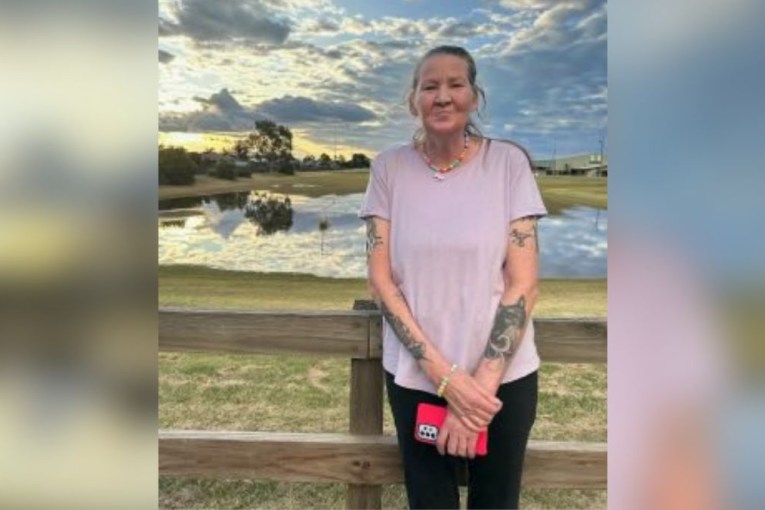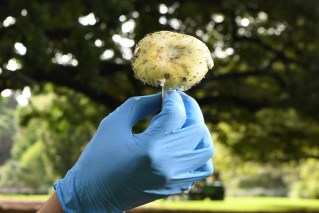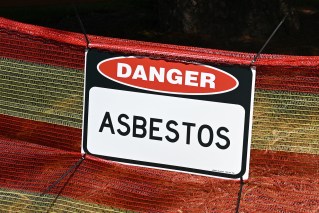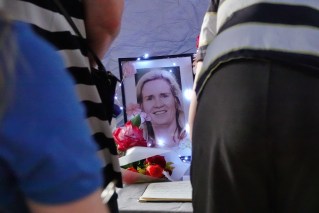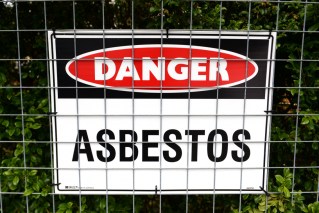Mistakes in Victoria’s initial hotel quarantine program put people at risk of contracting HIV

At least 275 people were put at risk of contracting a blood-borne virus. Photo: ABC News/Daniel Fermer
Failures when Victoria’s hotel quarantine scheme was first set up put some returned Australians at risk of contracting blood-borne diseases like HIV, an investigation has found.
The Safer Care Victoria review was launched last year after it was revealed blood sugar finger-prick tests were used on multiple hotel quarantine guests.
Blood glucose level (BGL) monitoring devices are meant to be used repeatedly by one person but were used across multiple people in hotel quarantine between March and August last year.
The needles can be changed between each use but the body of the device can retain microscopic amounts of blood, meaning there is a low risk of transmission of blood-borne viruses such as HIV and Hepatitis B and C.
The review authors called the risk posed to resident safety within the hotel system “a concerning find”.
The risk was identified in August, and 20,500 residents had passed through the 19 hotels in the system by the time single-use disposable devices were used instead.
Safer Care’s review of guest records “was complex and lengthy”, as the hotel quarantine system initially used a paper-based system.
Additionally, the review found the transition to an electronic system was not clearly documented and there were inconsistencies with record-keeping across hotels.
Of the 1,700 people identified who may have had the test, the Department of Health has so far only successfully contacted 1,500 people, despite what Safer Care called “multiple attempts”.
“Most were found to have used their own device and were not at risk, or did not have the test,” a Safer Care Victoria spokesperson said.
Of the 275 people referred for follow-up testing, there are no positive results connected to the incident.
“No former quarantine residents exposed to potential cross-contamination have been identified as having contracted a blood-borne virus as a result of having their blood glucose level tested,” the spokesperson said.
Original system ‘overwhelmed’ by quick setup
The review found issues with governance, logistics and supply, nursing leadership, recruitment, clinical practice guidelines and the fact that registered nurses were working in an unfamiliar environment contributed to the oversight.
“This review found the initial set up of the program was overwhelmed by the rapid time frames, which made it challenging for leaders to establish robust systems for clinical governance,” it reads.
It found a lack of a formal recruitment strategy into the quarantine system meant public service staff deployed to the sites were “lacking relevant leadership and management knowledge” to identify the risks of relating to the monitoring equipment.
And the absence of clinical practice guidelines, training or orientation on the equipment “may have contributed to a lack of recognition of the cross-contamination risks”.
It is not the first time issues of governance have been identified by reviews into Victoria’s hotel quarantine scheme, with the highly publicised Coate inquiry into coronavirus breaches finding the system was “an orphan” with nobody claiming responsibility.
The running of the state’s quarantine hotels has undergone dramatic changes since the program was first set up, with strict protocols currently in place after a number of reviews.
The Safer Care review made 13 recommendations, many of which have already been addressed in the revamped scheme.
“All 13 recommendations from the review have been accepted and have been implemented or are well underway, including strengthening training, leadership and clinical governance,” the Safer Care spokesperson said.
The BGL devices were used for people with diabetes or who were pregnant or generally unwell.
COVID-19 is not spread by blood, so there was no risk of transmission of the virus through the devices’ use.
If people believe or are unsure if they had the test, they call the dedicated line on 1800 356 061 during business hours.
–ABC
